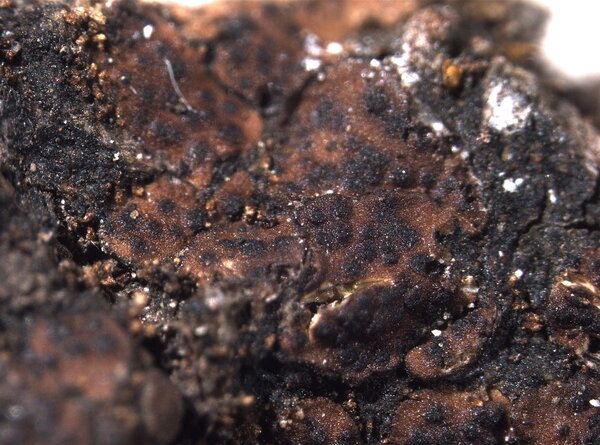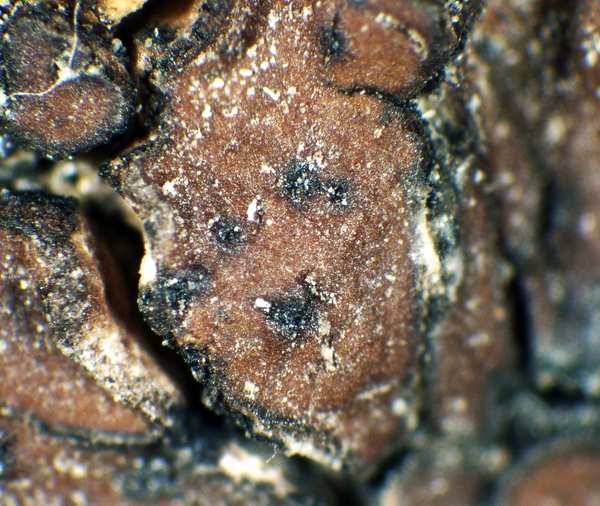Clavascidium lacinulatum (Ach.) M. Prieto
in Prieto & al., Am. J. Bot., 99: 28, 2012. Basionym: Endocarpon hepaticum var. lacinulatum Ach. - Lichenogr. Univ.: 299, 1810.
Synonyms: Catapyrenium lacinulatum (Ach.) Breuss; Dermatocarpon trapeziforme auct. non (J. König) Trevis.; Placidium lacinulatum (Ach.) Breuss
Distribution: N - Ven, TAA. C - Sar. S - Pugl, Cal (Puntillo 1996).
Description: Thallus squamulose, pale to dark brown, dull, non- or very slightly pruinose. Squamules , scattered to contiguous, rarely overlapping, 3-8 mm broad, 0.3-0.5 mm thick, at first rounded, then crenulate, flattened to weakly convex, smooth, with an undulate-crisped edge. Lower surface pale brown, sometimes darkening, attached by several, simple to weakly dichotomously branched, robust, 100-300 μm thick, several mm long, pale to brown rhizines, and by colourless, 3-5 μm thick rhizohyphae. Upper cortex paraplectenchymatous 40-80 µm thick; medulla of isodiametrical, thick-walled cells, well-delimited from lower cortex; lower cortex poorly developed, the cells not arranged in vertical rows. Perithecia frequent, laminal, immersed in the squamules, globose to broadly pyriform, up to 0.65 mm across, without involucrellum. Exciple colourless to pale brown throughout; hymenial gel hemiamyloid; hamathecium of periphyses measuring 25-35 x 2.5-3.5 µm, interascal filaments absent. Asci 8-spored, cylindrical, thin-walled, I-, without a tholus, 65-80 x 12-17 µm. Ascospores 1-celled, hyaline, ellipsoid, thin-walled, uniseriately arranged at least in young asci, 12-15(-17) x 5.5-7.5 μm. Pycnidia laminal, immersed, black, to 0.5 mm in diam., Dermatocarpon-type. Conidia oblong-ellipsoid, 3-4(-5) x 1.3-2 μm. Photobiont chlorococcoid. Spot tests: cortex and medulla K-, C-, KC-, P-, UV-. Chemistry: without lichen substances.Note: a mainly Mediterranean-Atlantic to mild-temperate terricolous species found on loess and calciferous ground, most frequent in dry grasslands at relatively low elevations.
Growth form: Squamulose
Substrata: soil, terricolous mosses, and plant debris
Photobiont: green algae other than Trentepohlia
Reproductive strategy: mainly sexual
Commonnes-rarity: (info)
Alpine belt: absent
Subalpine belt: absent
Oromediterranean belt: absent
Montane belt: absent
Submediterranean belt: very rare
Padanian area: absent
Humid submediterranean belt: very rare
Humid mediterranean belt: rare
Dry mediterranean belt: rare

Predictive model
Herbarium samples
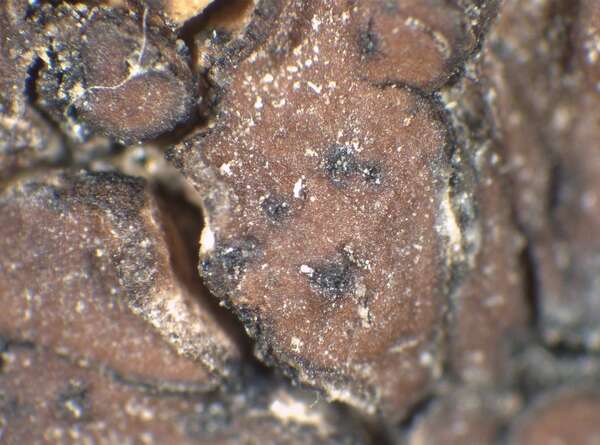

P.L. Nimis; Owner: Department of Life Sciences, University of Trieste
Herbarium: GZU Herb.Glowacki
2003/04/28
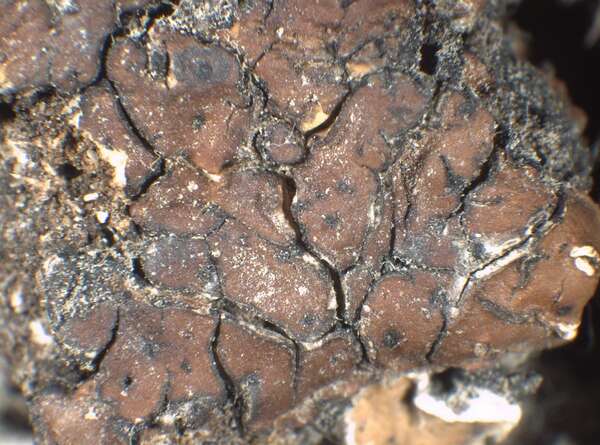

P.L. Nimis; Owner: Department of Life Sciences, University of Trieste
Herbarium: GZU Herb.Glowacki
2003/04/28
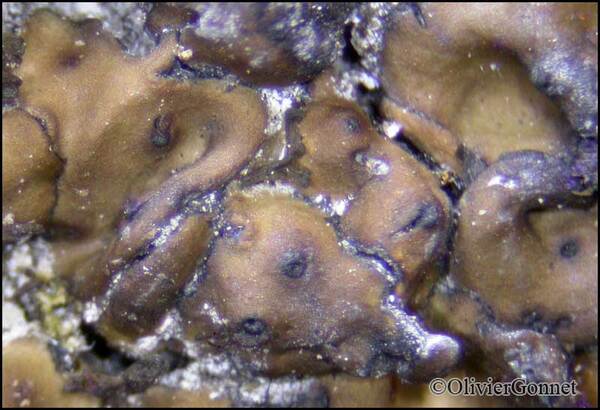
Courtesy Danièle et Olivier Gonnet - Source: https://www.afl-lichenologie.fr/Photos_AFL/Photos_AFL_P/Text_P_2/Placidium_lacinulatum.htm
France, 4/10/2010 - Saint Florent la Strutta - Corse
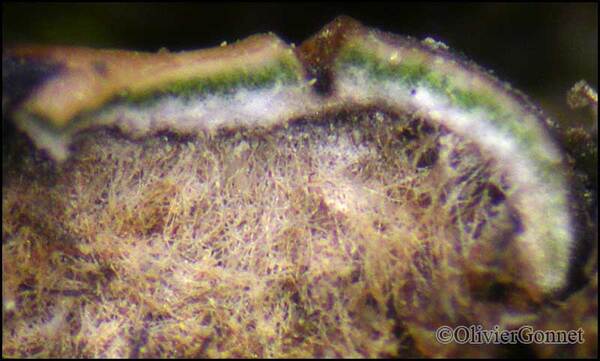
Courtesy Danièle et Olivier Gonnet - Source: https://www.afl-lichenologie.fr/Photos_AFL/Photos_AFL_P/Text_P_2/Placidium_lacinulatum.htm
France, 4/10/2010 - Saint Florent la Strutta - Corse

Courtesy Danièle et Olivier Gonnet - Source: https://www.afl-lichenologie.fr/Photos_AFL/Photos_AFL_P/Text_P_2/Placidium_lacinulatum.htm
France, 4/10/2010 - Saint Florent la Strutta - Corse
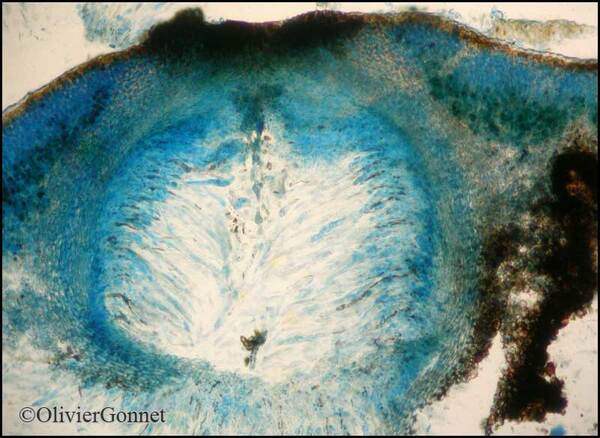
Courtesy Danièle et Olivier Gonnet - Source: https://www.afl-lichenologie.fr/Photos_AFL/Photos_AFL_P/Text_P_2/Placidium_lacinulatum.htm
France, 4/10/2010 - Saint Florent la Strutta - Corse
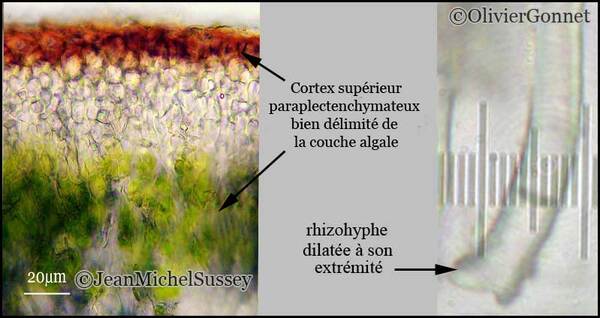
Courtesy Danièle et Olivier Gonnet - Source: https://www.afl-lichenologie.fr/Photos_AFL/Photos_AFL_P/Text_P_2/Placidium_lacinulatum.htm
France, 4/10/2010 - Saint Florent la Strutta - Corse

Courtesy Danièle et Olivier Gonnet - Source: https://www.afl-lichenologie.fr/Photos_AFL/Photos_AFL_P/Text_P_2/Placidium_lacinulatum.htm
France, 4/10/2010 - Saint Florent la Strutta - Corse
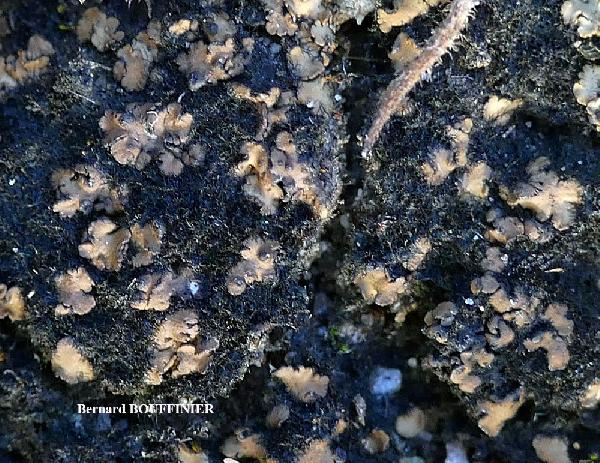
Bernard Bouffinier - Source: http://www.lichensmaritimes.org/index.php?task=fiche&lichen=741&lang=en
France, Pointe de Pen-Hir
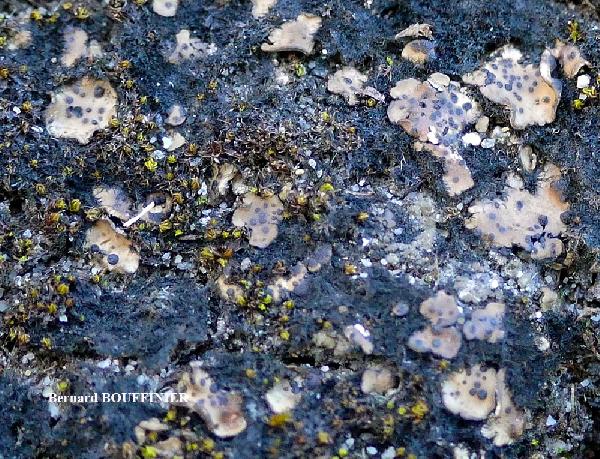
Bernard Bouffinier - Source: http://www.lichensmaritimes.org/index.php?task=fiche&lichen=741&lang=en
France, Pointe de Pen-Hir
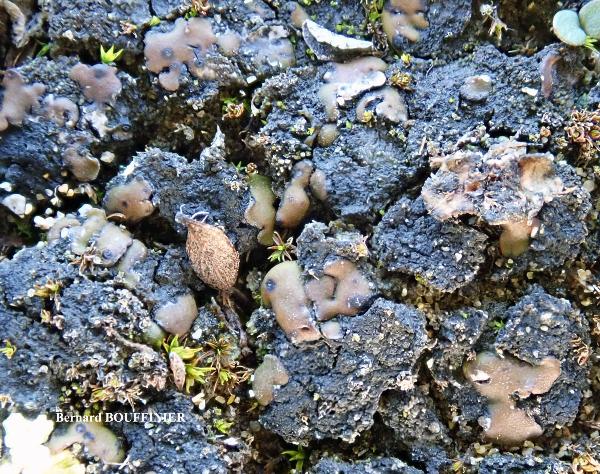
Bernard Bouffinier - Source: http://www.lichensmaritimes.org/index.php?task=fiche&lichen=741&lang=en
France, La Palue
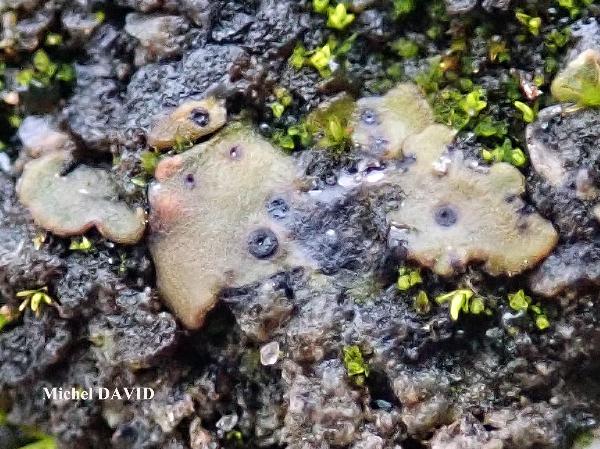
Bernard Bouffinier - Source: http://www.lichensmaritimes.org/index.php?task=fiche&lichen=741&lang=en
France, La Palue, dunes
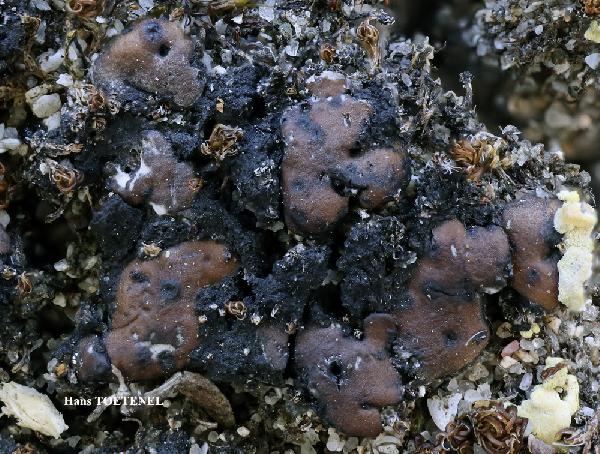
Bernard Bouffinier - Source: http://www.lichensmaritimes.org/index.php?task=fiche&lichen=741&lang=en
France, La Palue
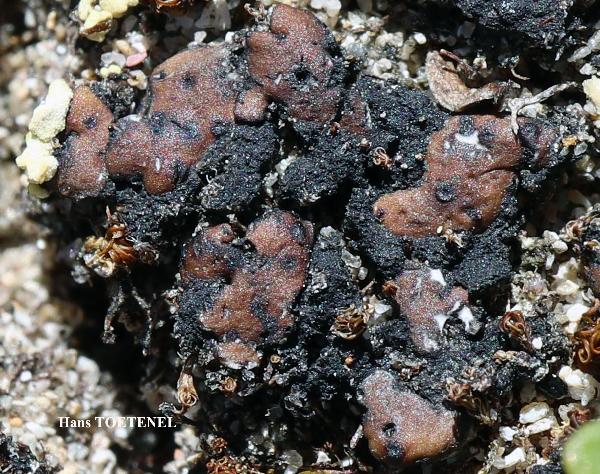
Bernard Bouffinier - Source: http://www.lichensmaritimes.org/index.php?task=fiche&lichen=741&lang=en
France, La Palue
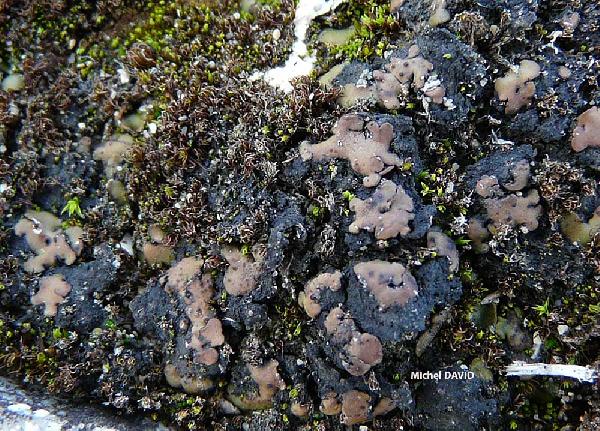
Michel David - Source: http://www.lichensmaritimes.org/index.php?task=fiche&lichen=741&lang=en
France, La Palue
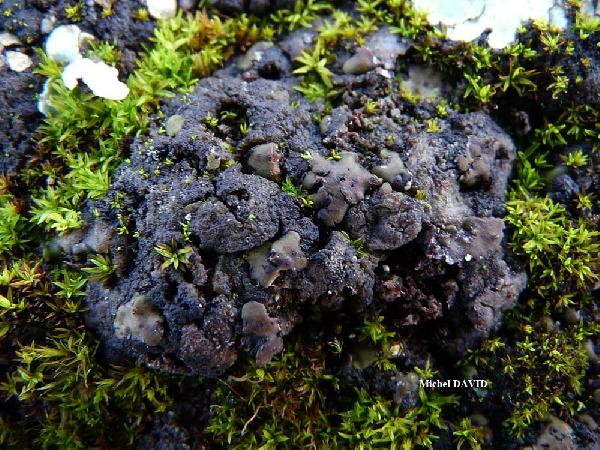
Michel David - Source: http://www.lichensmaritimes.org/index.php?task=fiche&lichen=741&lang=en
France, La Palue
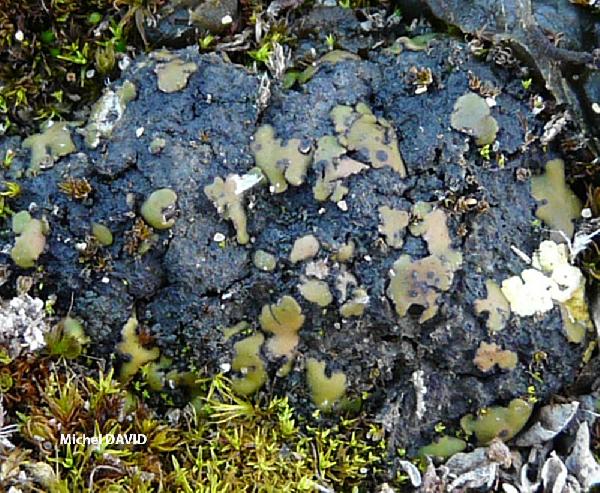
Michel David - Source: http://www.lichensmaritimes.org/index.php?task=fiche&lichen=741&lang=en
France, La Palue
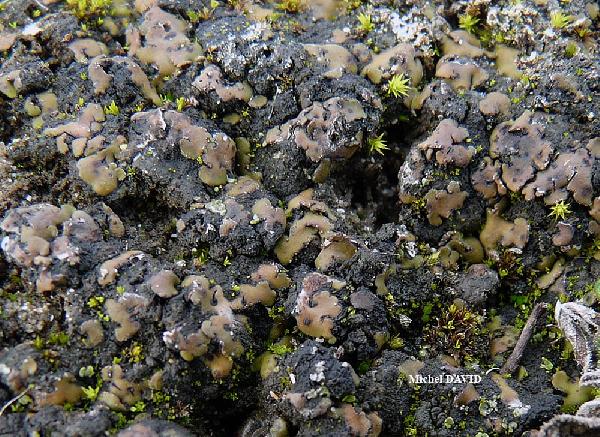
Michel David - Source: http://www.lichensmaritimes.org/index.php?task=fiche&lichen=741&lang=en
France, La Palue
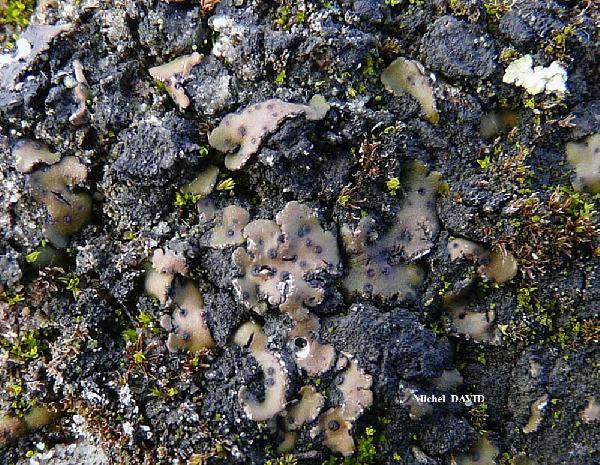
Michel David - Source: http://www.lichensmaritimes.org/index.php?task=fiche&lichen=741&lang=en
France, La Palue
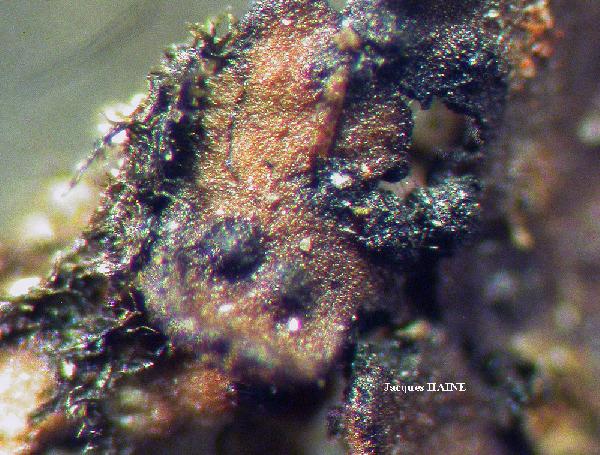
Jacques Haine - Source: http://www.lichensmaritimes.org/index.php?task=fiche&lichen=741&lang=en
France, Pointe de Pen-Hir
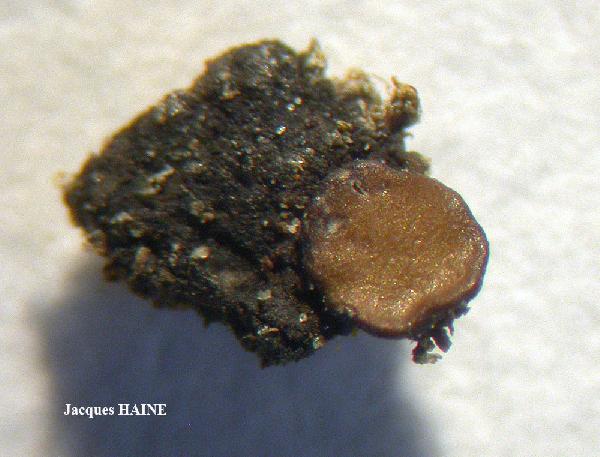
Jacques Haine - Source: http://www.lichensmaritimes.org/index.php?task=fiche&lichen=741&lang=en
France, La Palue
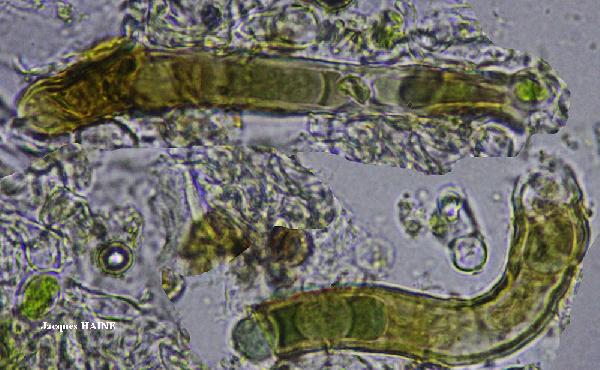
Jacques Haine - Source: http://www.lichensmaritimes.org/index.php?task=fiche&lichen=741&lang=en
France, Pointe de Pen-Hir
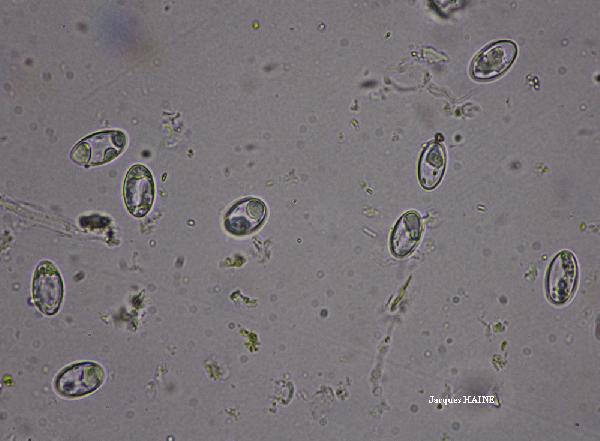
Jacques Haine - Source: http://www.lichensmaritimes.org/index.php?task=fiche&lichen=741&lang=en
France, Pointe de Pen-Hir
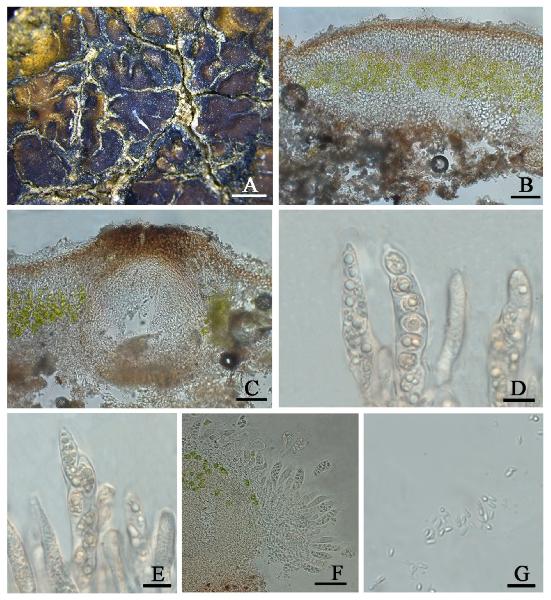
Source: Zhang, T.; Zhang, X.; Yang, Q.; Wei, X. Hidden Species Diversity was Explored in Two Genera of Catapyrenioid Lichens (Verrucariaceae, Ascomycota) from the Deserts of China. J. Fungi 2022, 8, 729. https://doi.org/10.3390/jof8070729 - CC BY 4.0
China
The thallus habit and the anatomic structure of Clavascidium lacinulatum (HMAS-L 153962). (A). Squamulose thallus. (B). Transversal section of thallus. (C). Immersed perithecium. (D,E). Uniseriate ascospores in cylindrical asci. (F). Biseriate ascospores in clavate asci. (G). Conidia. Bars: (A) =2 mm, (B,C) =50 µm, (D,E) =10 µm, (F) =50 µm, and (G) =10 µm.
Growth form: Squamulose
Substrata: soil, terricolous mosses, and plant debris
Photobiont: green algae other than Trentepohlia
Reproductive strategy: mainly sexual
Commonnes-rarity: (info)
Alpine belt: absent
Subalpine belt: absent
Oromediterranean belt: absent
Montane belt: absent
Submediterranean belt: very rare
Padanian area: absent
Humid submediterranean belt: very rare
Humid mediterranean belt: rare
Dry mediterranean belt: rare

Predictive model
| Herbarium samples |


P.L. Nimis; Owner: Department of Life Sciences, University of Trieste
Herbarium: GZU Herb.Glowacki
2003/04/28


P.L. Nimis; Owner: Department of Life Sciences, University of Trieste
Herbarium: GZU Herb.Glowacki
2003/04/28

Courtesy Danièle et Olivier Gonnet - Source: https://www.afl-lichenologie.fr/Photos_AFL/Photos_AFL_P/Text_P_2/Placidium_lacinulatum.htm
France, 4/10/2010 - Saint Florent la Strutta - Corse

Courtesy Danièle et Olivier Gonnet - Source: https://www.afl-lichenologie.fr/Photos_AFL/Photos_AFL_P/Text_P_2/Placidium_lacinulatum.htm
France, 4/10/2010 - Saint Florent la Strutta - Corse

Courtesy Danièle et Olivier Gonnet - Source: https://www.afl-lichenologie.fr/Photos_AFL/Photos_AFL_P/Text_P_2/Placidium_lacinulatum.htm
France, 4/10/2010 - Saint Florent la Strutta - Corse

Courtesy Danièle et Olivier Gonnet - Source: https://www.afl-lichenologie.fr/Photos_AFL/Photos_AFL_P/Text_P_2/Placidium_lacinulatum.htm
France, 4/10/2010 - Saint Florent la Strutta - Corse

Courtesy Danièle et Olivier Gonnet - Source: https://www.afl-lichenologie.fr/Photos_AFL/Photos_AFL_P/Text_P_2/Placidium_lacinulatum.htm
France, 4/10/2010 - Saint Florent la Strutta - Corse

Courtesy Danièle et Olivier Gonnet - Source: https://www.afl-lichenologie.fr/Photos_AFL/Photos_AFL_P/Text_P_2/Placidium_lacinulatum.htm
France, 4/10/2010 - Saint Florent la Strutta - Corse

Bernard Bouffinier - Source: http://www.lichensmaritimes.org/index.php?task=fiche&lichen=741&lang=en
France, Pointe de Pen-Hir

Bernard Bouffinier - Source: http://www.lichensmaritimes.org/index.php?task=fiche&lichen=741&lang=en
France, Pointe de Pen-Hir

Bernard Bouffinier - Source: http://www.lichensmaritimes.org/index.php?task=fiche&lichen=741&lang=en
France, La Palue

Bernard Bouffinier - Source: http://www.lichensmaritimes.org/index.php?task=fiche&lichen=741&lang=en
France, La Palue, dunes

Bernard Bouffinier - Source: http://www.lichensmaritimes.org/index.php?task=fiche&lichen=741&lang=en
France, La Palue

Bernard Bouffinier - Source: http://www.lichensmaritimes.org/index.php?task=fiche&lichen=741&lang=en
France, La Palue

Michel David - Source: http://www.lichensmaritimes.org/index.php?task=fiche&lichen=741&lang=en
France, La Palue

Michel David - Source: http://www.lichensmaritimes.org/index.php?task=fiche&lichen=741&lang=en
France, La Palue

Michel David - Source: http://www.lichensmaritimes.org/index.php?task=fiche&lichen=741&lang=en
France, La Palue

Michel David - Source: http://www.lichensmaritimes.org/index.php?task=fiche&lichen=741&lang=en
France, La Palue

Michel David - Source: http://www.lichensmaritimes.org/index.php?task=fiche&lichen=741&lang=en
France, La Palue

Jacques Haine - Source: http://www.lichensmaritimes.org/index.php?task=fiche&lichen=741&lang=en
France, Pointe de Pen-Hir

Jacques Haine - Source: http://www.lichensmaritimes.org/index.php?task=fiche&lichen=741&lang=en
France, La Palue

Jacques Haine - Source: http://www.lichensmaritimes.org/index.php?task=fiche&lichen=741&lang=en
France, Pointe de Pen-Hir

Jacques Haine - Source: http://www.lichensmaritimes.org/index.php?task=fiche&lichen=741&lang=en
France, Pointe de Pen-Hir

 INDEX FUNGORUM
INDEX FUNGORUM
 GBIF
GBIF
 DOLICHENS
DOLICHENS
